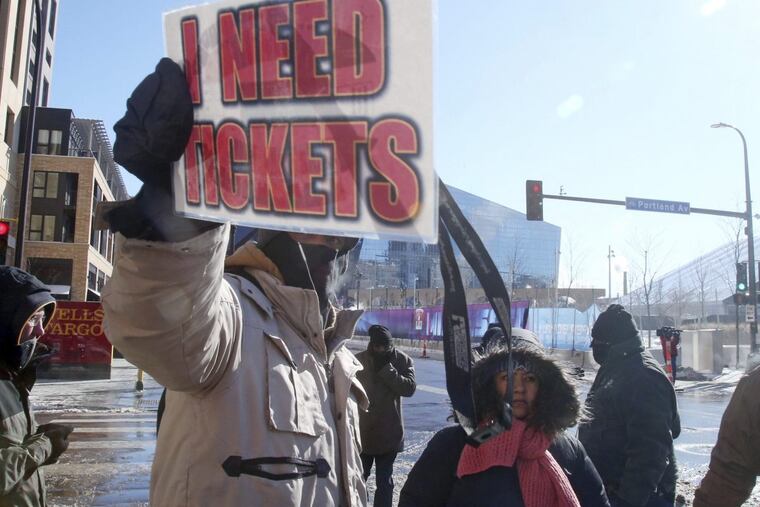Super Bowl ticket sales and prices under scrutiny by N.J. court
The Eagles' win at the Super Bowl was one for the history books, but a previous Super Bowl, held in New Jersey, is one for the law books. The N.J. Supreme Court has agreed to hear arguments in a case in which a fan claims that the NFL violated the state's Consumer Fraud Act by selling the vast majority of tickets to teams and league insiders who inflated the prices beyond what the average person could afford.

The Eagles-Patriots Super Bowl game was one for the history books, but a Super Bowl held in New Jersey in 2014 may be one for the law books.
The state's Supreme Court is about to hear arguments in a lawsuit that seeks refunds and damages for thousands of fans who paid more than face value for their tickets to the Seattle Seahawks-Denver Broncos matchup in New Jersey. A ruling in the fan's favor could also lead to lower ticket prices the next time the Super Bowl is held at MetLife Stadium in East Rutherford, N.J.
The suit was filed by Josh Finkelman, a fan who said he overpaid for two tickets to the Seahawks-Broncos game and accused the NFL of violating the state's Consumer Fraud Act by selling too few tickets to the general public through a lottery. He filed his lawsuit in federal court in Trenton, saying he paid $2,000 for each ticket through a broker, though each ticket had a face value of $800.
The 2014 Super Bowl marked the first time the Garden State hosted the big game. Like the Eagles, the Seahawks were the underdogs, though their fans didn't embrace the label as heartily as Eagles fans, who donned masks with dog faces. The Seahawks had a more decisive victory, beating the Broncos, 43-8, while the Eagles defeated the New England Patriots, 41-33, Sunday in a whiplash back-and-forth that created a tsunami of excitement at the Minnesota stadium.
Bruce Nagel, a Roseland attorney who represents Finkelman, said a 2001 New Jersey law protects consumers against inflated ticket prices by requiring vendors to sell 95 percent of their tickets directly to the general public. In Super Bowl XLVIII in New Jersey, he said, the NFL sold only 1 percent to the public through a nationwide lottery.
The case was dismissed twice by a federal judge, but after appeals, an appellate court asked the New Jersey Supreme Court to decide whether the NFL's actions might have violated state law. Should the court find that to be the case, the suit would proceed in federal court. Nagel said the suit was filed as a class action and he expects the court will order the NFL "to pay hundreds of millions of dollars to people who paid more than face value for their tickets."
Jonathan Pressment, a New York attorney who represents the NFL, declined comment. In court papers, the NFL contended that Finkelman did not have standing to sue because he had not tried to purchase face-value tickets through the NFL lottery. "Many more people desire to attend the Super Bowl each year than can be seated at Super Bowl host stadiums," lawyers for the NFL said in court documents. "Thus, even if the NFL had released Super Bowl tickets for free, it is likely that many fans still would have been forced to pay in excess of face value."
In his lawsuit, Finkelman said that 99 percent of all tickets to the game were distributed or sold to league insiders and the well-connected, leaving the public at the mercy of third-party brokers and others who then resold the tickets at steep prices.